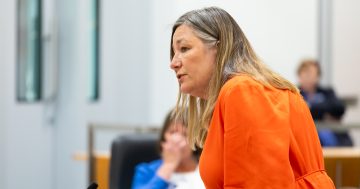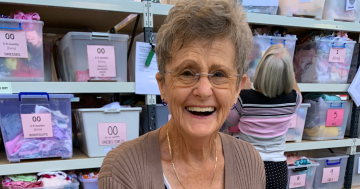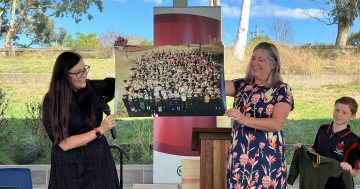
SAIS: An important step towards creating inclusive environments in ACT schools.
The launch of the new ACT Safe and Inclusive Schools initiative (SAIS) last week demonstrates that sometimes great things come out of unfortunate events. It also shows that despite our size, the ACT can show leadership and promote ways to encourage inclusion, safety and respect. It’s a great example of what happens when community organisations, experts, schools, and parents and carers come together in good faith and with a shared commitment to ensuring that all our young people in schools are supported to feel safe and included.
SAIS is the replacement program in the Canberra community for the Safe Schools Coalition Program, the national program that despite initial cross-party support in 2016 became the subject of a media and political campaign against it which resulted in major changes to the program and the ceasing of the program in the ACT.
The original program had been running in the ACT for some time, and was supported by a coalition of ACT health and community agencies including Sexual Health and Family Planning (SHPACT), the AIDS Action Council, A Gender Agenda, Belconnen Community Service, Northside Community Service (in their program partnership with Anglicare), Headspace Canberra, and Youth Coalition of the ACT. This program enjoyed the strong support of Government and was a welcome initiative in the schools’ community.
The campaign against the national Safe Schools program resulted in the Australian Government conducting a review of the program and related resources. While there were no major concerns identified through the review, the Federal Minister for Education announced a series of changes that the Australian Government would require of the program. The ACT did not continue under those arrangements from late 2016, and all funding for the national program ceased in 2017.
During 2017, the ACT Government showed leadership and backed the development of a program that better reflected the ACT context, and developed a model of working with school staff, students, parents and carers to co-design the program. Last week that work culminated in the launch of the new Safe and Inclusive School Initiative.
This type of program is vitally important. We know that schools are not particularly safe places for all students, especially if you are different to most other kids. There are real concerns in particular for the health and wellbeing of lesbian, gay, bisexual, transgender, intersex and queer (LGBTIQ) young people, given research that has found that 75% of LGBTIQ young people experience abuse and discrimination, and 80% of these young people experience this at school.
So it’s great news to know that ACT schools can once again access support to enhance safety and inclusion within their schools. And with the work that supporting organisations have been undertaking, means that this is an even better approach.
Unlike the previous program, the Initiative does not have a membership model, and school communities can engage support in whatever form best meets their needs. Rather than focusing on developing classroom teaching resources – there are already many available – it works with schools to respond to their specific needs in supporting the professional learning of teachers, assistance in supporting individual student needs, and identifying existing teaching materials suitable for the school community and student needs. It has been developed with the close involvement of representative parents and carers organisations, which has seen the program receive strong endorsement from the ACT Council of Parents and Citizens Associations, the peak body for public school parents.
I think we need to support more of these types of initiatives moving forward and commend all parties who have worked to develop the ACT Safe and Inclusive Schools Initiative that will make our schools safer places. What do you think?
More information about SAIS can be accessed via the program’s website or via SHFPACT.
If you or someone you care about needs support, there are places you can go for help. They include LIFELINE 13 11 14, KIDS HELPLINE 1800 551 800 and QLIFE 1800 184 527





















